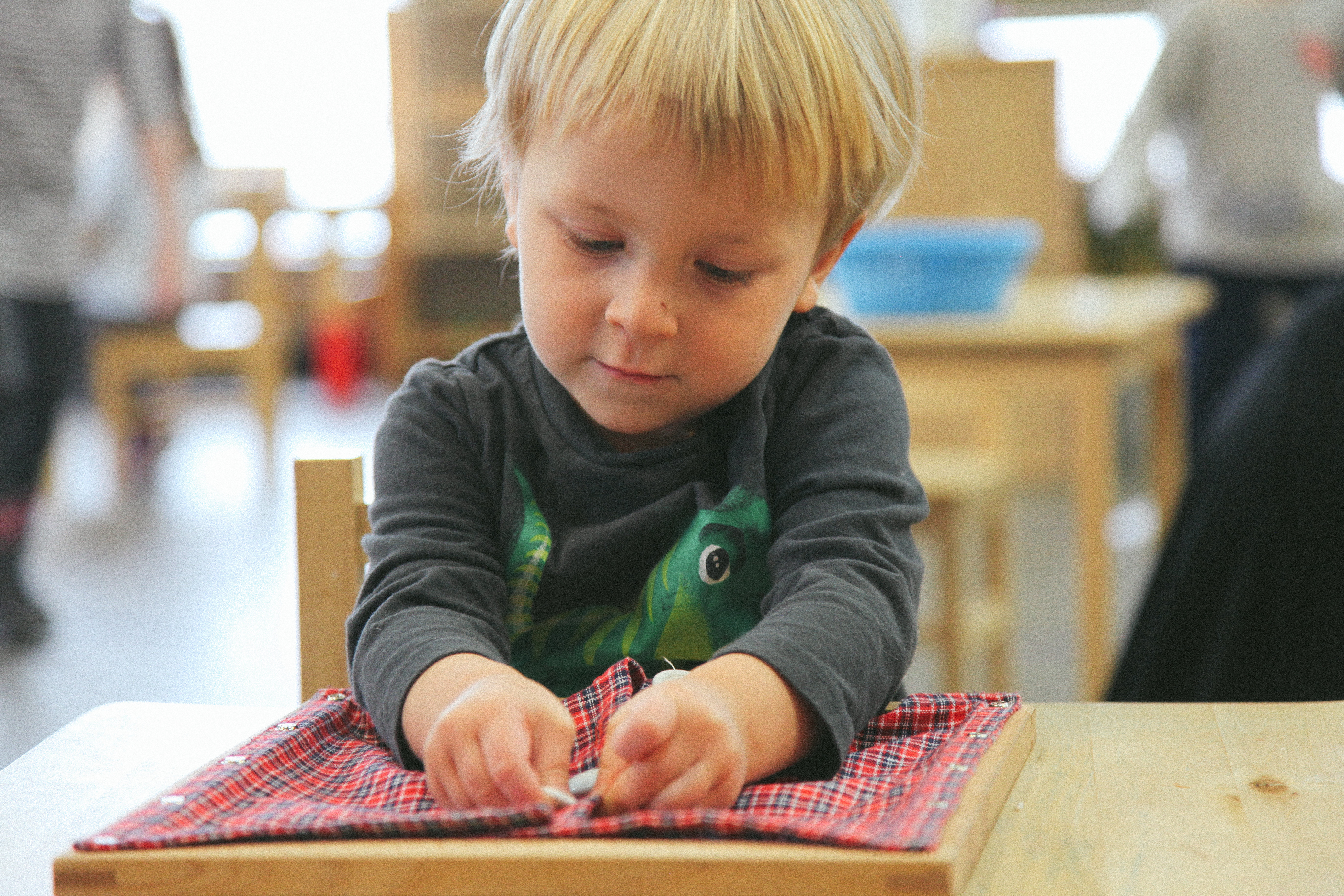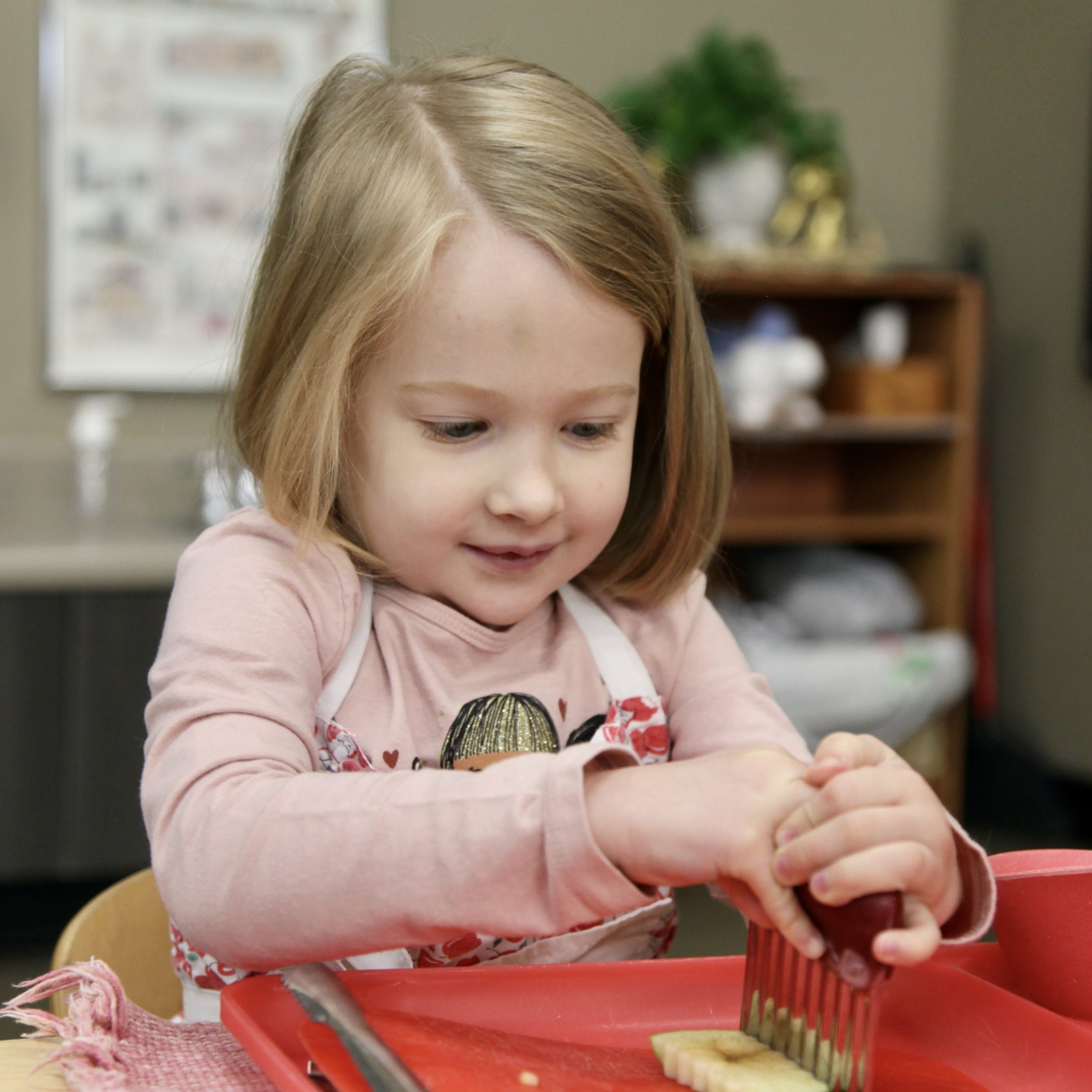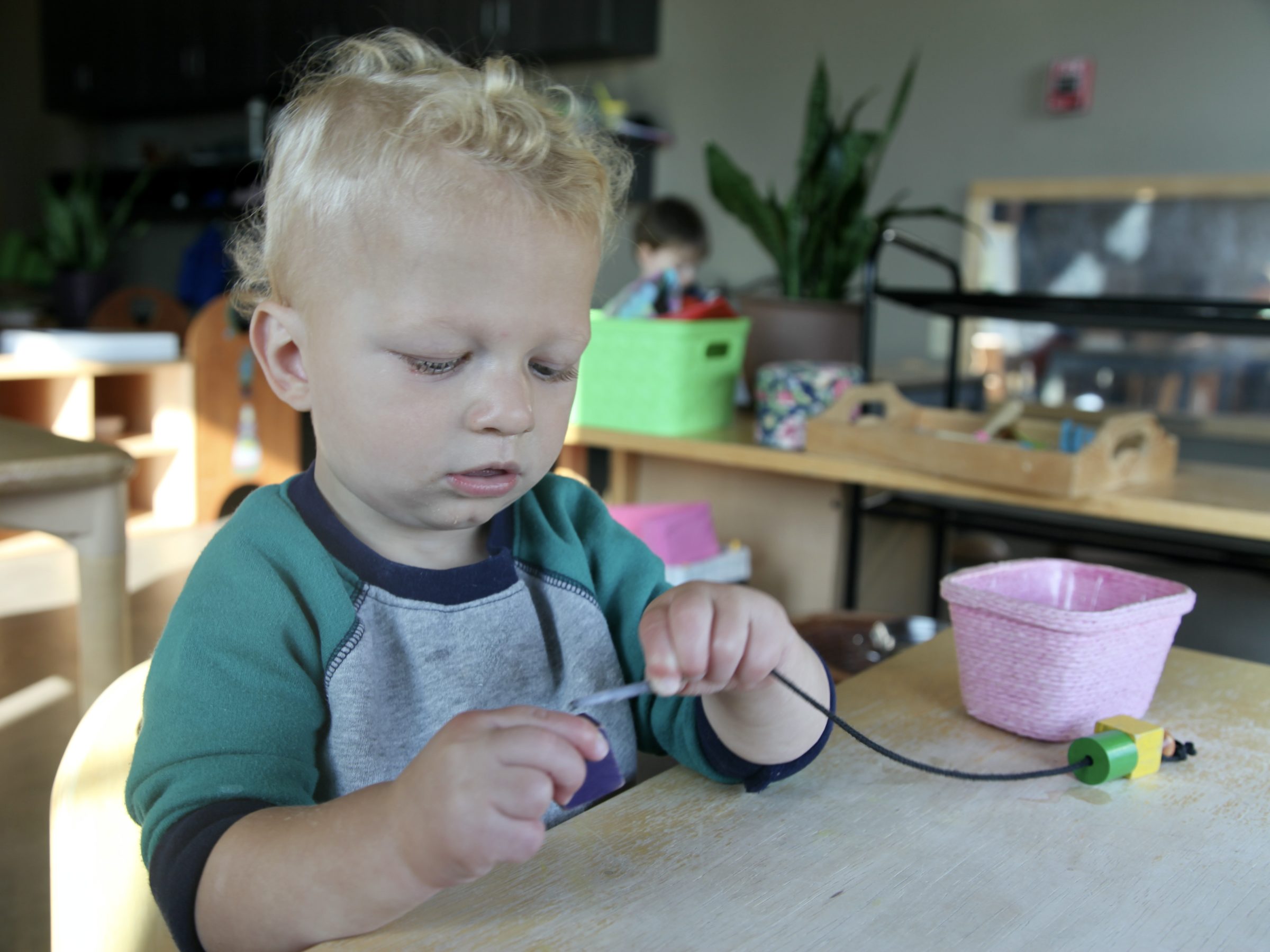Giving Choices in Montessori
Podcasts
Children surprise us with their opinions. For the first few years, they’re along for the ride, wearing, eating, and doing what we choose for them. A day comes and, out of the blue, they surprise us with their thoughts, opinions, desire to play a larger role in their day-to-day. Likes and dislikes, preferences, wanting to be heard and respected. It’s not a surprise “no” is one of those first words.
One of the ways we show children we see how much you’ve grown, I hear you, I respect you, is by giving choices. Our primary job, as caretakers, parents, and educators, is to keep children safe. We don’t give them unlimited choice, complete freedom, because that’s often unsafe. The option to run out in the street, the option to stay up all night, the option to wear a bathing suit to play in the snow. So, how do we give choices? What is safe, what are our family’s agreements, what am I willing to concede to my child’s own opinions? When I’ve made that decision, how do I phrase it to set my child up for success, thereby setting myself, our relationship, perhaps even the rest of the day, off on the right foot, up for success?

Children have control of so very little, namely clothing, sleep, eating, toileting. It’s natural to push the limits here, particularly when you’re small, and feeling the emergence of your own opinions, and the inability to affect change or to express yourself.
Sometimes, tantrums, “no,” or refusing to do or to eat or to wear what not long ago was just so easy, is one of the first cues that a child might be ready for making choices, and a cue to examine where we might introduce this opportunity.
In the classroom, we keep things safe, we set the conditions for success, we give options and phrase questions so a child can’t go wrong, so that any answer IS an option.
Would you like to have snack? Which puzzle would you like to choose? Are you going to pick your work, or would you prefer that I help you? Which boot are you going to put on first?

When we’re asked our opinion, we feel respected and seen. A child doesn’t feel manipulated because the whole world isn’t available to them, instead they feel empowered because whatever happens next, they got to play a role.
Choice can start small. Would you like to take your pants or your shirt off first before bath? Which three books would you like to pick? Would you like more milk?
Wow, me?! The world is my oyster! A baby doesn’t have an opinion about which shirt they’re wearing, but now they’re a toddler with Big Opinions, and “no” turns into a slippery guessing game that feels a bit like I say jump you say how high. This is another moment of safety — psychological safety is at play when you’re unsure if your parent is in charge. Reflecting on what options you’d like to provide, and how you’re going to offer those, ensures both safety and success. Which of these two or three shirts would you like to wear? If that’s comfortable, a top from this drawer and bottoms from this drawer make an outfit, have at it! Would you like peanut butter or almond butter on your toast this morning? Pick something from the fruit drawer to put in your lunch! Choices, or freedom, grow with your comfort and confidence in your child’s ability to make a decision.
Clothing is a natural and a simple option, as is food, but sometimes these aren’t options. Maybe life is easier for all involved if, for the time being, I pick out each day’s outfits, or nutrition needs to be closely monitored and there isn’t space for much choice. That’s fine. As adults, though, we need that unconscious flow chart that helps us make decisions all day long, and it’s a skill that’s developed starting in childhood. Where can choices be offered? Would you like to color or to play with Legos before dinner? Would you like to help me plant bulbs or help your mom rake leaves? Go ahead and pick five books from the library, and I’ll help you check them out.
Choice is important, as feeling heard and seen and respected and empowered can pave the way for fewer tantrums, for more cooperation when things get busy or stressful. We won’t always have the time or the ability to do everything for a child, and we can rest assured in their logic and in their self-control, since they’ve had the experience of making choices when it was safe and supported. It’s a life skill, like so many others they’re developing at this young age, and we’re setting them up for success.
Written by:
Charlotte Snyder




